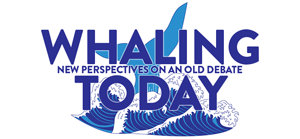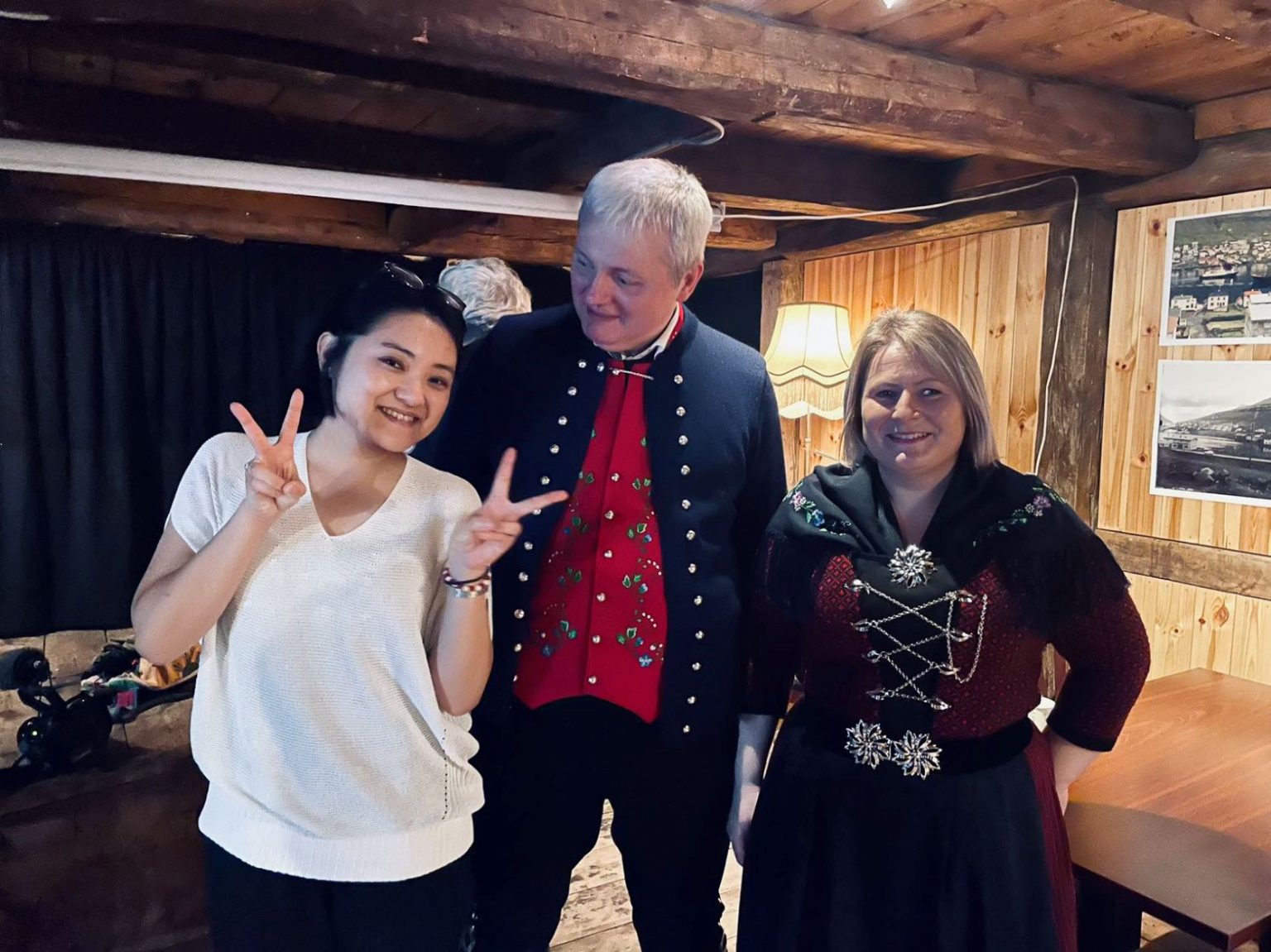The North Atlantic Marine Mammal Commission, NAMMCO, is a rare international organization that openly supports discussions around hunting marine mammals held to be sacrosanct in much of the world, such as whales, dolphins and seals.
This year is the 30th anniversary of NAMMCO’s founding. To mark the event, the group held a conference and food event in the Faroe Islands, with attendees from both member countries and other nations, both pro and anti-whaling, around the world.
Aya Matsuda, a student at the prestigious Matsushita Institute of Government and Management, attended the event. Matsuda’s reports on her experiences were originally written in Japanese for the Suisan-Keizai Daily News.
Part 2 of 3
Part 1: NAMMCO at 30: Supporting Discussions on the Sustainable Use of Marine Mammals
Part 3: NAMMCO at 30: A Global Showcase of Marine Mammal Delicacies
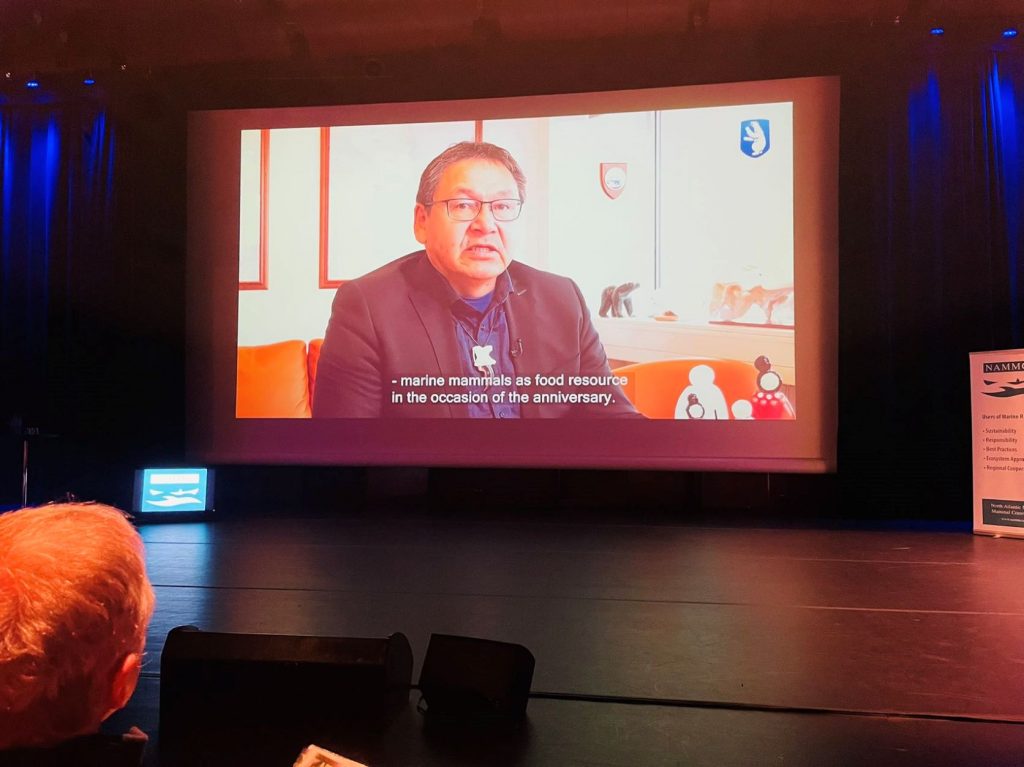
The two days of presentations at this 30th NAMMCO covered a broad range of topics related to the sustainable use of marine mammals. Speakers covered health and nutrition, intangible cultural heritage, identity, economic rationality, environmental protection, food contamination, food safety, and food security.
Through the NAMMCO, distant regions were invited to collaborate. Voices from local communities across the North Atlantic were able to participate directly in the international discussions.
Participants didn’t limit themselves to conclusions from their home regions. Instead, they pursued the larger theme of how to utilize marine mammals as food resources, adding their cultural identities to the broader picture.
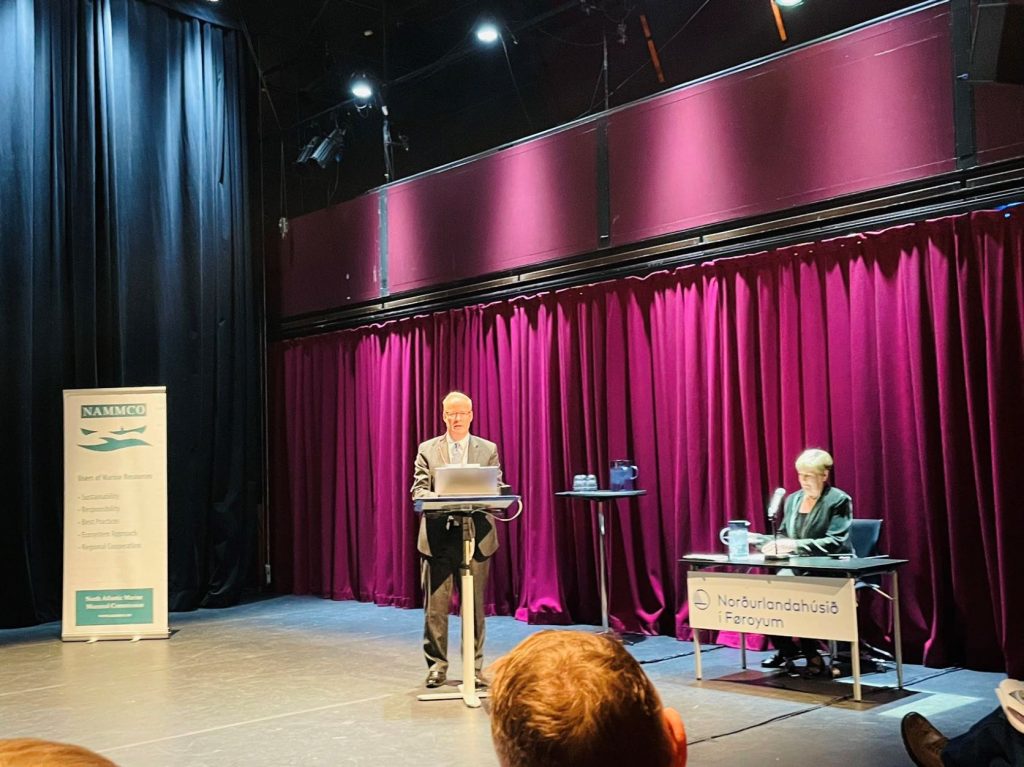
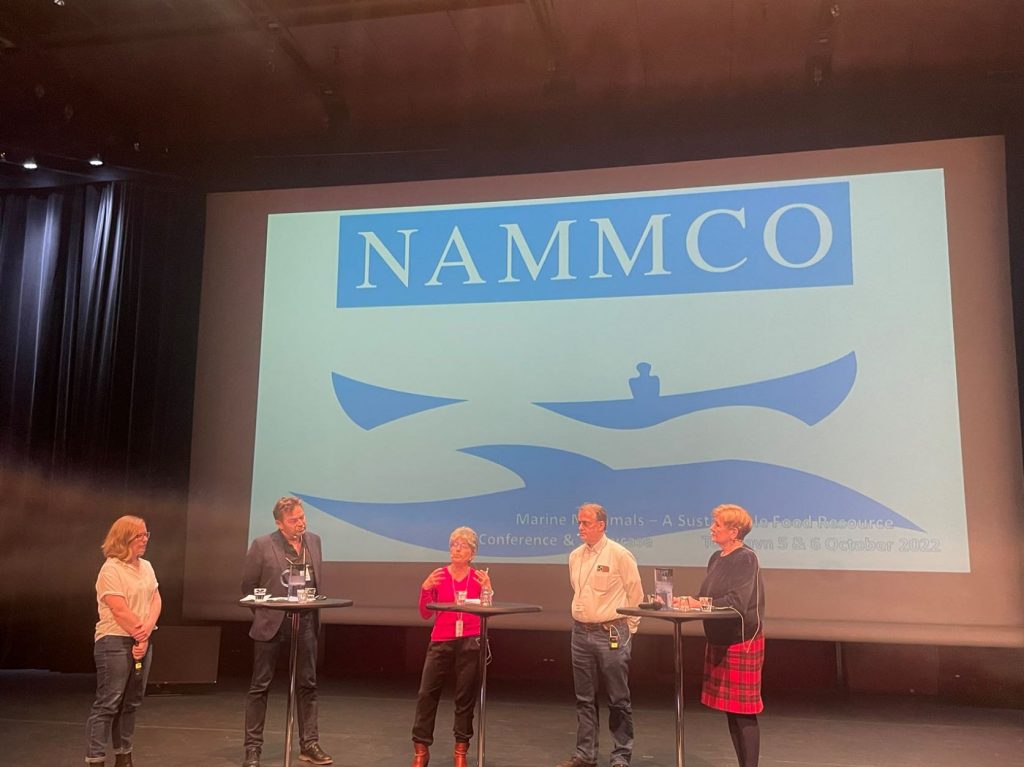
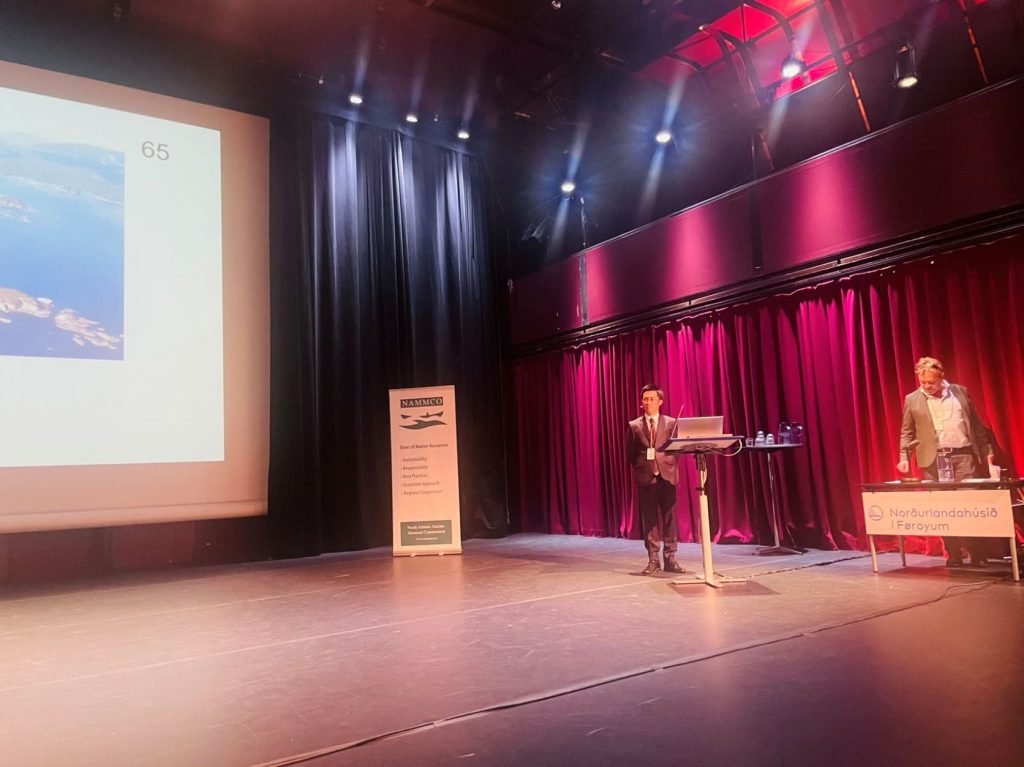
Eating Marine Mammals as National Identity
The meeting set out to broaden understanding on a large scale of conflicting issues, such as the contrast between global and local perspectives. It also took on the dilemma of tradition livelihoods versus urbanite lifestyles, along with the risk and rewards of different foods.
Still, the participants were cognizant that in the end choices will be made by individuals. And decisions will be made by individual regions and countries.
Personally, I was most impressed by the participants from Greenland, who were united in asserting that “Eating marine mammals is our national identity.”
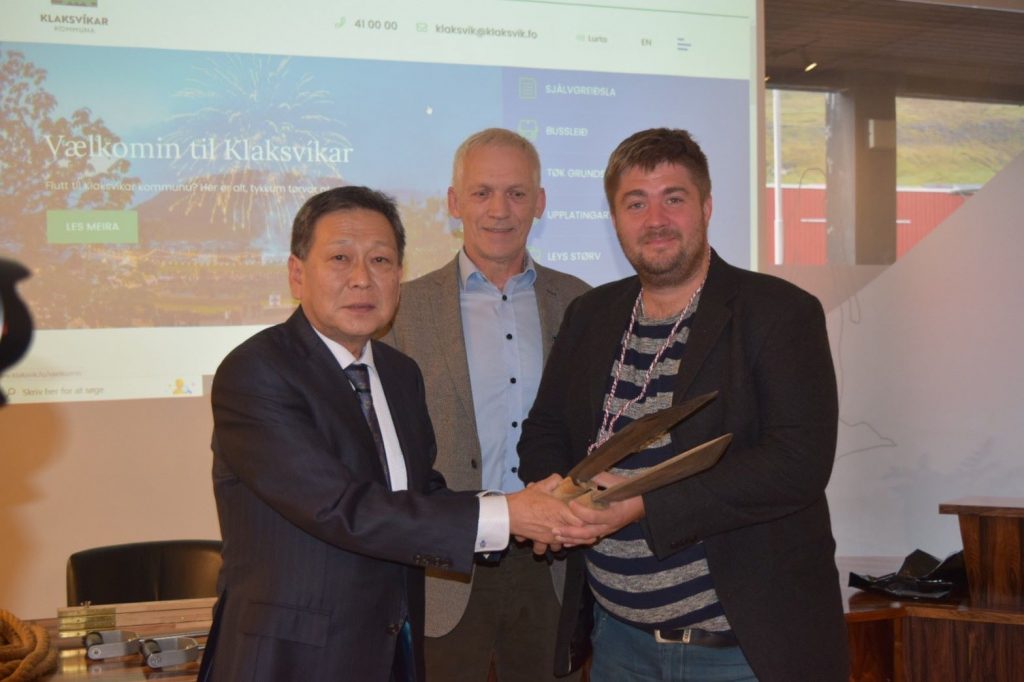
Taiji’s Sister Town in the Faroes
On the second afternoon of the two-day event, there was an optional trip by bus to a town called Klaksvik. The town is the second largest in the Faroe Islands. And in 2018 Klaksvik signed an agreement to become the sister town of Taiji, in Japan’s Wakayama Prefecture. The trip included presentations by the mayor of Klaksvik, members of the whaling group on the Faroe Islands, and event participants from Taiji.
At the local museum, we were treated to a performance of the dance done after a successful whale hunt. Those of us who joined the tour then formed a ring, joining hands, and tried the dance ourselves. It was a basic dance and easy to enjoy. We moved our feet along with the music, taking two steps to the left and then one to the right.
Debate with an Iranian Journalist
While there were no participants who directly opposed whaling or criticized the proceedings, there were a number of foreign journalists. They were from countries such Iran, Switzerland, the United States, and England which clearly were not supportive of whaling.
“Don’t you think a time will come when we have to stop our cultural traditions to prevent global warming?” asked a journalist from Iran.
In between sessions I approached her to ask for more details. Expecting her to have some sort of concrete numerical data on which she based her statements, I asked her “When do you think that time will come?”
“I think the time is right now,” she responded.
What sort of proof she had was unclear. But she repeatedly emphasized her stance. “That the more marine mammals there are, the less carbon dioxide is released has been proven,” she said. “I understand that in certain regions hunting whales or seals is an inherited tradition and important to the local identity. But I think it must be stopped,” she added.
It is true that in 2021 Stanford University participated in publishing a theory that if whale stocks could be restored to levels from before the start of commercial whaling, it would help restore the global environment.
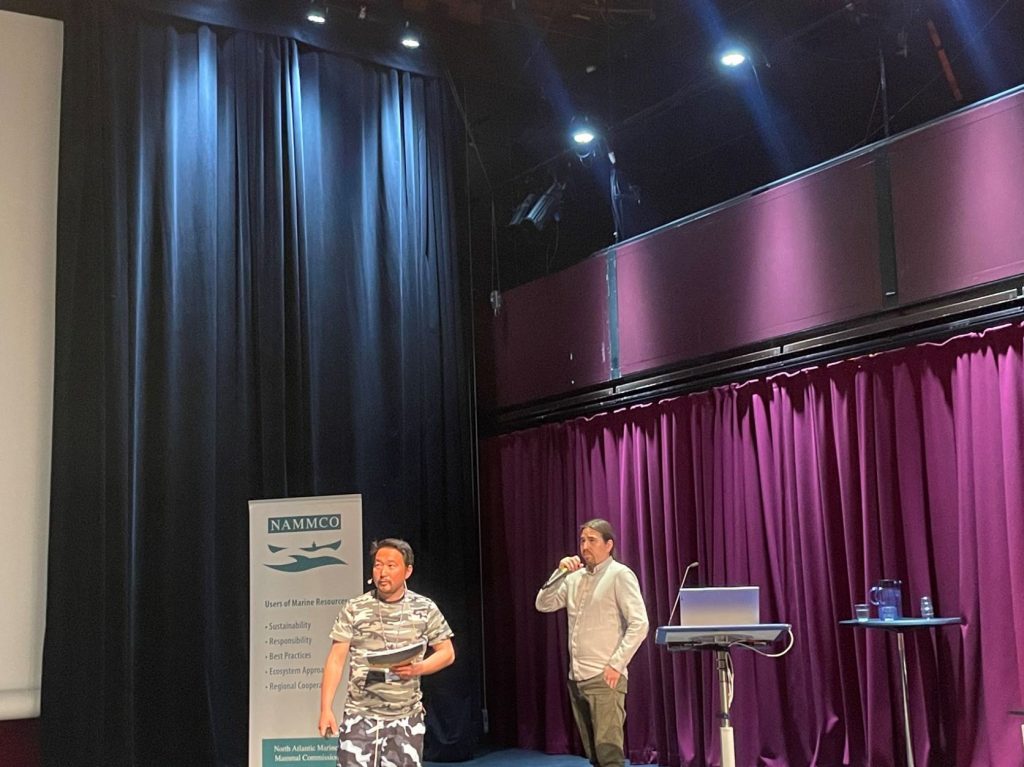
Dolphin Hunts in the Faroes
Even within the Faroe Islands, there are regional disparities and gaps between generations. These contribute to differing concerns toward food, as well as movements such as veganism. But the region has an important local cultural history of drive fishing local pods of pilot whales. It dates back hundreds of years and has been passed down through generations. Pods of dolphins that wander near to shore are also occasionally hunted. Hunting of three species – bottlenose dolphins, white-beaked dolphins, and harbor porpoises – is permitted legally.
However, in the Faroes it is not common to kill dolphins. Nevertheless, in 2021 over 1,400 white-beaked dolphins were taken through drive fishing. This number was far more than the originally allocated quota.
The large catch was called an unexpected accident and became a major topic of discussion. That it couldn’t be prevented was called a “major embarrassment” even by many locals.
The incident occurred because from the beginning the operators of the drive hunts weren’t able to properly cope with ecological factors.
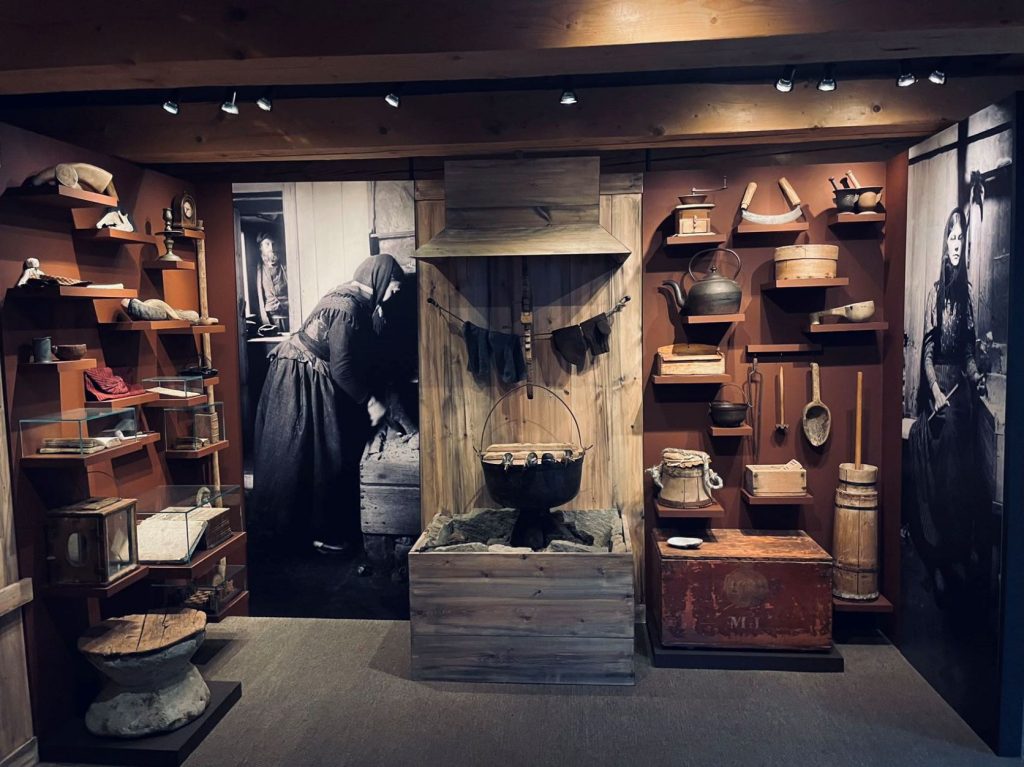
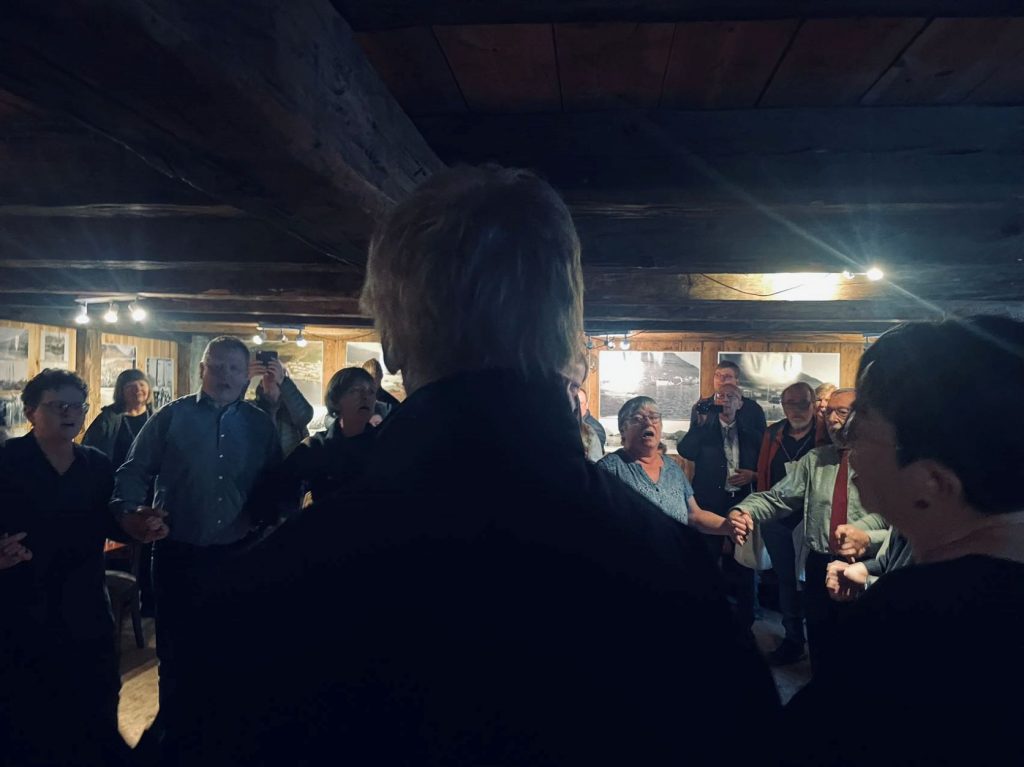
Sticking to Traditions With Marine Mammals
Even now in the 21st Century, traditional whaling methods are used in the Faroe Islands. When someone spots a pod of whales they report it. And the local whaling group immediately assembles their boats to drive the pod into the harbor.
It is a passive-reactive approach. The whales are called “pilot whales” because pods have the tendency to follow others in the lead, the “pilots” of the pod. This makes it difficult for human hunters to separate pods at sea.
In addition, dolphins often mingle with pilot whales. And when the hunters decide whether to start a drive, it is possible to misjudge the size or species of pods.
About Aya Matsuda
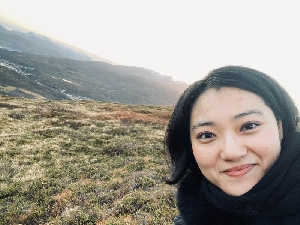
Aya Matsuda is a student at the prestigious Matsushita Institute of Government and Management. Born in Hiroshima, she has an international background, having studied at Ohio State University as well as Peking University. She is currently focused on Japan’s food safety and national independence and Japan through reviving its primary industries, particularly its fishing industry.
This report was originally written in Japanese for the Suisan-Keizai Daily News. Read the report in Japanese here.
Continues in Part 3.
RELATED:
- Taiji Dolphin Hunt Criticism Evolves Into Animal Rights Debate
- Revisiting the Roots of the Whaling Issue: Sustainable Use, Environmental Protection
- OPINION: 10 Years After ‘The Cove,’ It’s Clear That Activist Harassment, Cultural Invasion of Japan Town Have Backfired
(This article is published in cooperation with the Institute of Cetacean Research. Let us hear your thoughts in our comments section.)
(Read the report in Japanese at this link.)
Author: Aya Matsuda
(© Suisan-Keizai by Aya Matsuda)
